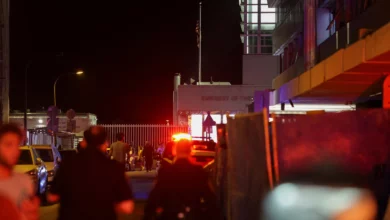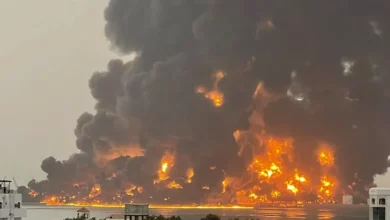ADEN, Yemen – A leading member of Yemen's opposition called on Western countries to freeze the assets of President Ali Abdullah Saleh, who is clinging to power despite months of protest against his 33-year rule.
Sheikh Hamid al-Ahmar, a key tribal figure who belongs to Yemen's main opposition party, the Islamist Islah, also lashed out at Saleh's sons' "desperate" attempts to keep the family in power as their father recovers in Saudi Arabia from a June assassination attempt.
"I call on Western states…to begin proceedings to seize the possessions and money of Saleh and his family, because they belong to the Yemeni people," he said in an interview with pan Arab daily al-Hayat, adding those funds could be used to repay the country's debts.
The protests have paralyzed the impoverished Arabian Peninsula state, where even before the unrest some 40 percent of the population lived on less than US$2 per day.
Governments worldwide have responded to crackdowns on Egyptian, Tunisian and Libyan protesters this year by freezing their long-time leaders' assets.
But while veteran presidents in Egypt and Tunisia bowed to pressure they quit, Saleh has proved a shrewd political survivor, and officially remains in power.
Al-Ahmar praised Saudi Arabia's role in mediating the crisis, dismissing accusations by some protesters it is thwarting their demands: "I see the Gulf initiative, which was essentially a Saudi effort, as one of the supporting aspects of the revolution," he said.
Saudi Arabia has spearheaded a Gulf Arab plan to end Yemen's political deadlock by easing Saleh out of office, but he backed out of signing it three times at the very last minute, leaving Yemen in political limbo.
Last week Saleh said he would look at reviving the initiative, which would see him hand over power to Vice President Abd-Rabbu Mansour Hadi, but his opponents question whether this is yet another stalling tactic.
Away from the negotiating table, violence flared anew in Yemen's south, where Islamist militants have exploited a political vacuum, taking over at least two cities in the volatile province of Abyan, including its capital Zinjibar.
Two soldiers and four militants were killed in fighting on Saturday night when militants attacked an army compound and a sports stadium used as a makeshift military base, a local official said. Seven more militants were killed in air strikes after planes were sent to help repel them.
A loose coalition of tribesmen and the army last month launched an offensive to try to flush militants out of Abyan, but they have yet to regain much of the lost ground.
Opponents of Saleh, who earned US backing by presenting himself as a vital partner in the West's counter terrorism strategy, say he has deliberately let militants expand their foothold in the south to convince the international community only he can keep Al-Qaeda's Yemen-based wing in check.
The United States and Saudi Arabia, both targets of Al-Qaeda in Yemen are worried instability there could create a serious security threat.




